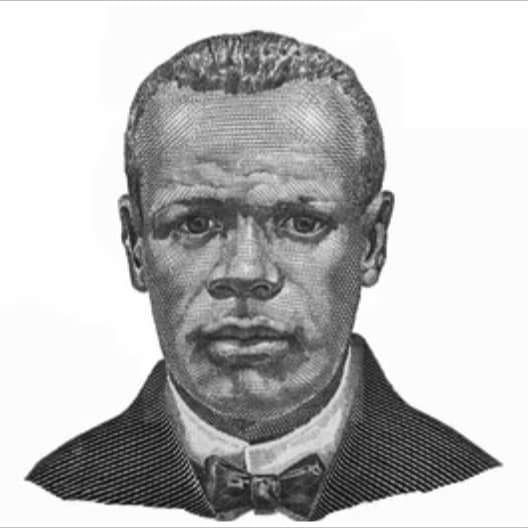By Burnett Munthali
Rev. John Chilembwe is a towering figure in Malawi’s history and a symbol of resilience against colonial oppression. His legacy, shaped by his unyielding commitment to justice and equality, continues to inspire generations across the African continent and beyond. As we reflect on his life and actions, there are invaluable lessons to learn from this remarkable leader’s journey.
1) The power of awareness and education
John Chilembwe understood the transformative power of education. His time in the United States, where he studied at the Virginia Theological Seminary from 1898 to 1899, was pivotal in shaping his worldview. There, he encountered radical ideas about racial equality and social justice, ideas that were absent in colonial Nyasaland.
Upon his return, Chilembwe prioritized education as a tool for empowerment. Through the Providence Industrial Mission, he established schools to equip his community with the knowledge needed to challenge the oppressive colonial system. This underscores the critical role of education in raising consciousness and fostering change.
2) Vision beyond immediate circumstances
Despite the harsh realities of colonial rule, Chilembwe envisioned a liberated society. He sought not just to improve the lives of his people under British rule but to dismantle the systems of oppression entirely. His rebellion in 1915, though unsuccessful in the short term, was a bold assertion of the right to self-determination.
The lesson here is the importance of maintaining a vision that transcends immediate challenges. Chilembwe’s actions remind us that significant progress often begins with daring to dream of a better future.
3) Leadership rooted in morality and conviction
As a Baptist minister, Chilembwe’s faith deeply influenced his leadership. His sermons often drew parallels between the biblical struggle for liberation and the plight of Africans under colonialism. He believed in the moral imperative to resist injustice and held his community to high ethical standards.
Modern leaders can learn from Chilembwe’s commitment to leading with integrity and conviction. His actions were not driven by personal gain but by a genuine desire to uplift his people.
4) The importance of economic independence
Chilembwe recognized that true liberation required economic empowerment. Through his mission, he encouraged agricultural production, particularly cash crops like cotton, tea, and coffee. He sought to reduce his community’s reliance on exploitative colonial systems like the thangata labor regime.
This highlights the critical link between economic independence and political freedom. Sustainable development and economic self-reliance remain key pillars in the fight against systemic oppression.
5) Courage in the face of adversity
The 1915 Chilembwe Uprising was a courageous act of defiance against the might of the British Empire. Chilembwe knew the risks and was aware that the rebellion might cost him his life. Yet, he pressed on, believing that his sacrifice could ignite a broader movement for justice.
Courage, as demonstrated by Chilembwe, is an essential trait for leaders and change-makers. His willingness to confront overwhelming odds serves as a reminder that fearlessness is often the catalyst for transformative change.
6) The legacy of sacrifice
John Chilembwe’s life and death illustrate the profound impact of sacrifice in the struggle for justice. Although the 1915 uprising was swiftly crushed, his martyrdom inspired future generations of freedom fighters in Malawi and beyond.
Sacrifice, in this context, is not limited to the ultimate price Chilembwe paid. It also includes the daily sacrifices he made to educate, organize, and uplift his community. His life teaches us that meaningful change often requires putting the needs of others above our own.
7) The role of cultural and historical identity
Chilembwe drew strength from his identity as an African and used it to rally his community. He condemned colonial narratives that dehumanized Africans and sought to restore pride and dignity to his people.
Understanding and embracing one’s cultural and historical identity is crucial in the fight against systemic oppression. Chilembwe’s example shows how rootedness in one’s heritage can be a source of strength and unity.
8) Advocacy for social justice and equality
Chilembwe was a vocal critic of the inequalities perpetuated by the British colonial administration. He denounced the exploitation of African labor, the mistreatment of famine refugees, and the conscription of Africans into World War I. His resistance was not just about independence; it was about creating a fair and just society.
This emphasis on social justice remains relevant today. Chilembwe’s legacy challenges us to address the systemic injustices that persist in modern societies.
Conclusion
Rev. John Chilembwe’s life is a blueprint for transformative leadership. His commitment to education, his moral convictions, his courage in the face of adversity, and his vision for a liberated society are lessons that resonate deeply in contemporary struggles for justice and equality.
As Malawi and other nations confront challenges of inequality, corruption, and underdevelopment, Chilembwe’s legacy serves as a powerful reminder of what can be achieved through selflessness, resilience, and an unwavering commitment to change.
John Chilembwe was not just a historical figure; he was a beacon of hope, a conscious leader, and a visionary whose lessons will endure for generations. It is our responsibility to carry forward his ideals and continue the fight for a more just and equitable world.




